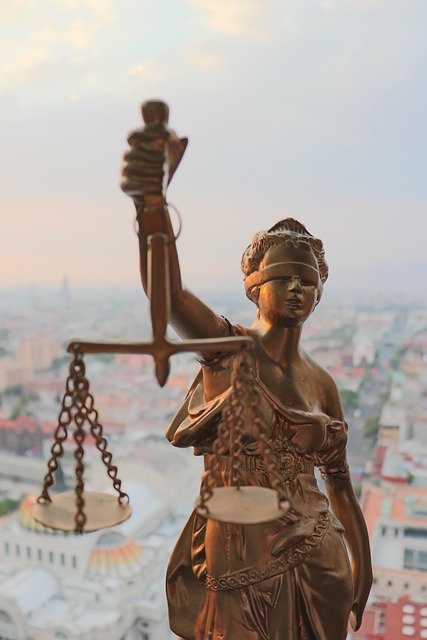Whistleblower protection laws safeguard individuals exposing illegal activities from retaliation, fostering transparency. Defamation of character, a key component in lawsuits, involves making false statements harming reputation. Navigating these protections requires expert legal advice on potential defamation claims to defend against baseless accusations. Specialized attorneys offer tailored strategies to dismiss charges, prioritizing truth and integrity behind whistleblowing actions.
“Whistleblower protection lawsuits have become a critical aspect of upholding integrity within organizations. This article guides you through the intricate world of whistleblower laws, focusing on key considerations like understanding protection legislation and navigating defamation of character claims—a common legal pitfall for whistleblowers.
We explore strategies for when whistleblowers face legal action, emphasizing the importance of seeking defamation of character legal advice to mount an effective defense. By understanding these dynamics, you’ll be better equipped to protect yourself and your disclosures.”
- Understanding Whistleblower Protection Laws
- Defamation of Character: Legal Definitions
- When Whistleblowers Face Legal Action
- Navigating Legal Advice & Support
- Strategies for Effective Defense Against Lawsuits
Understanding Whistleblower Protection Laws

Whistleblower protection laws are designed to safeguard individuals who expose illegal or unethical activities within their organizations from potential retaliation. These laws recognize the vital role whistleblowers play in holding powerful entities accountable and ensuring transparency. Understanding these legal protections is crucial, especially for those considering coming forward with information that could lead to significant changes.
In many jurisdictions, whistleblower protection laws prohibit employers or others from taking adverse actions against individuals who report fraudulent or illegal activities. This includes a wide range of actions, such as termination, demotion, or harassment. The goal is to encourage people to speak up without fear of retaliation, thereby fostering a culture of accountability and integrity. In high-stakes cases involving white-collar and economic crimes, these laws have proven instrumental in securing winning challenging defense verdicts for those who choose to come forward with valuable insights. However, navigating these legal protections can be complex, and seeking expert legal advice is essential when dealing with potential defamation of character claims or other related issues.
Defamation of Character: Legal Definitions

Defamation of character, a key aspect in whistleblower protection lawsuits, refers to the making of false statements that harm an individual’s reputation. In legal terms, it involves publishing or communicating false information that damages a person’s standing in their community, business, or social circles. This can include accusations of criminal conduct, professional misconduct, or any act that taints one’s integrity. The key element is the untruth of the statement—if the allegations are later proven to be true, they may not constitute defamation.
Understanding defamation laws is crucial for seeking legal advice when involved in whistleblower cases. Defamation can occur through various mediums, including oral statements, written documents, or even electronic communications. In the context of white-collar and economic crimes, where secrets and sensitive information are often at play, this law becomes particularly relevant. Those who bring forward such issues must be protected from baseless accusations that could harm their reputation, especially when they’re part of philanthropic and political communities where public trust is paramount. Achieving extraordinary results in these cases requires a deep understanding of the legal definitions and protections offered to whistleblowers.
When Whistleblowers Face Legal Action

Whistleblowers often find themselves in a precarious position when they choose to expose wrongdoing within their organizations. In many cases, they face legal action from the very entities they are trying to hold accountable. This can include lawsuits for defamation of character, which can be particularly damaging given the public nature of whistleblowing. These high-stakes cases require specialized legal advice tailored to protect the rights and interests of whistleblowers.
The philanthropic and political communities have recognized the importance of robust whistleblower protection laws. Winning challenging defense verdicts in such cases not only upholds the integrity of the justice system but also reinforces the notion that speaking up against corruption and unethical practices is a noble endeavor. Effective legal representation in these matters can ensure that whistleblowers are defended against baseless allegations and that their actions are recognized as acts of courage rather than malice.
Navigating Legal Advice & Support

Navigating legal advice and support is an essential step for individuals facing whistleblower protection lawsuits. It’s crucial to seek professional guidance from attorneys specializing in white-collar defense, who can offer a winning challenging defense strategy tailored to each unique case. These experts are well-versed in understanding complex laws and regulations, ensuring clients receive the best possible outcome.
One key aspect to focus on is defending against defamation of character allegations. A strong legal team can help construct a robust defense, aiming for a complete dismissal of all charges. They will assist in presenting facts and evidence that highlight the truth and integrity behind the whistleblower’s actions, thereby undermining false accusations.
Strategies for Effective Defense Against Lawsuits

In the face of Whistleblower Protection Lawsuits, strategic defenses are paramount to ensuring a fair outcome. One key approach is to focus on refuting allegations of wrongdoing and providing compelling evidence that supports your position. Engaging experienced legal counsel specializing in defamation of character cases is crucial; they can guide you through the complexities of the law and help construct a robust defense.
Additionally, demonstrating that any whistleblowing activities were not motivated by malicious intent but rather a sincere desire to expose legitimate concerns can be powerful. Across the country, courts have consistently emphasized the importance of protecting public interest disclosures. By presenting well-documented evidence and providing transparent explanations for your actions, you can aim for a complete dismissal of all charges, thereby avoiding indictment and safeguarding your reputation.
Whistleblower protection lawsuits are complex legal battles, often pitting individuals with valuable information against entities seeking to silence them. Understanding whistleblower protection laws, such as those guarding against defamation of character, is crucial for both whistleblowers and their supporters. Accessing appropriate legal advice and employing effective defense strategies can ensure that truth prevails in these cases. By familiarizing themselves with the relevant legal framework and seeking professional guidance, individuals can protect their rights while contributing to a more transparent and accountable society.






